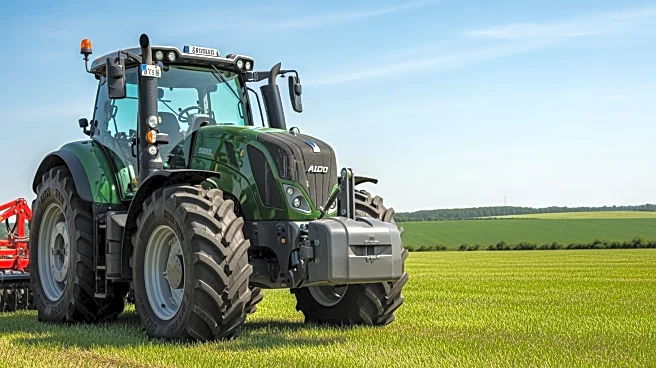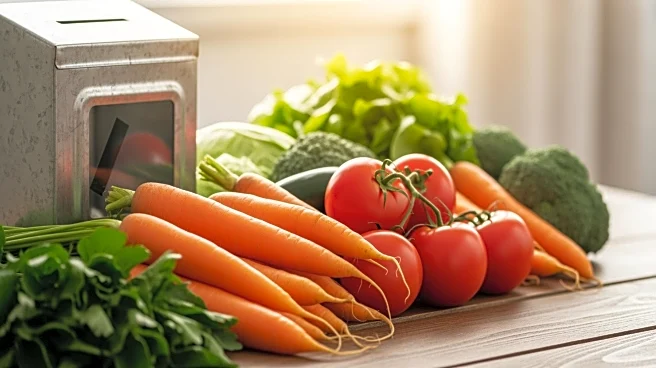What's Happening?
The U.S. agricultural machinery market is projected to grow significantly, reaching USD 205 billion by 2031. This growth is driven by increased mechanization and the adoption of advanced farm technologies. The market, which was valued at USD 167.99 billion in 2024,
is expected to expand at a compound annual growth rate (CAGR) of 4.9% from 2025 to 2033. Key players in the industry, such as John Deere, AGCO Corp, and CNH Industrial N.V., are integrating automation, GPS, and AI-enabled systems to enhance precision and productivity in farming. The demand for eco-efficient and low-emission machinery is also rising, aligning with global climate goals. Governments across emerging economies are providing subsidies and incentives to promote farm automation and reduce labor dependency, further shaping the market landscape.
Why It's Important?
The expansion of the agricultural machinery market is crucial for addressing the rising global food demand and shrinking arable land. By adopting mechanization and high-efficiency farming solutions, farmers can optimize yield and reduce labor dependency. The integration of precision agriculture technologies such as GPS, AI, and IoT is revolutionizing traditional farming methods, enhancing productivity and sustainability. Supportive government subsidies and modernization initiatives are boosting equipment adoption, especially among small and medium farmers. The growing demand for sustainable, electric, and hybrid machinery is spurring innovation and environmental compliance across the sector, contributing to long-term farming sustainability.
What's Next?
The agricultural machinery market is expected to continue evolving with advancements in technology and increased emphasis on sustainability. Companies like John Deere and AGCO Corp are likely to expand their investment in smart farming technologies and domestic production. The adoption of electric, hybrid, and autonomous models will enhance productivity and precision farming capabilities. As governments continue to support farm automation through subsidies and incentives, the market is poised for further growth. Additionally, the focus on eco-friendly and precision farming equipment will align with global sustainability and emission-reduction goals.
Beyond the Headlines
The shift towards mechanization and smart farming technologies in the agricultural machinery market has broader implications for global food security and environmental sustainability. By reducing labor dependency and enhancing efficiency, these advancements can help address challenges such as labor shortages and aging farmer demographics. The emphasis on eco-efficient machinery supports global climate goals, contributing to the reduction of agricultural emissions. As the market continues to grow, it will play a pivotal role in transforming global food production and ensuring long-term farming sustainability.















